Y Filltir Sgwâr/The Square Mile: Pwll-du – remembering a village at Christmas time
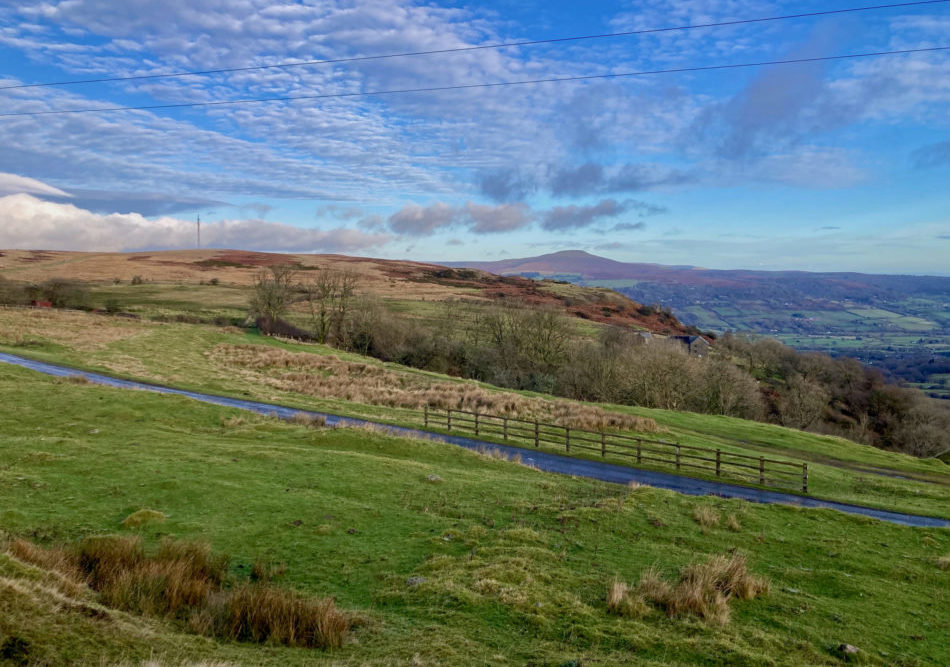
In a year long series Tom Maloney, from Abersychan, shows how you can love a place so well it becomes a part of you.
How lovely it was to meet up with Jon Gwillym and his father Roy in August at Pwll-du, near Blaenavon to remember the village that once stood there.
It is not often that you get the opportunity to chat with people who have such an intimate connection with the land and I relished every moment of it. This one was an absolute highlight for me.
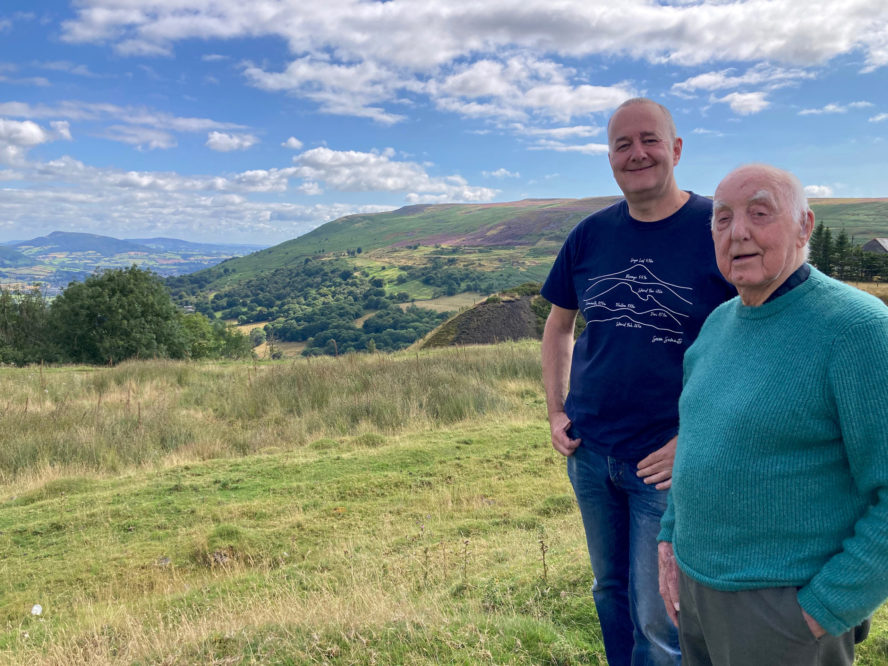
I have only met Jon just a couple of times, but I believe I know him well enough now to say that Pwll-du holds a special place within his heart. He is passionate about the old village and dearly wants to preserve the memories that could otherwise become locked in time within the landscape.
Memories are so often more valuable than gold and precious gemstones, but at the same time they are also fragile and easily lost. They require a deal of dedication and patience to preserve. Jon has done that rare and special thing, he has talked to his father about his childhood memories and recorded them.
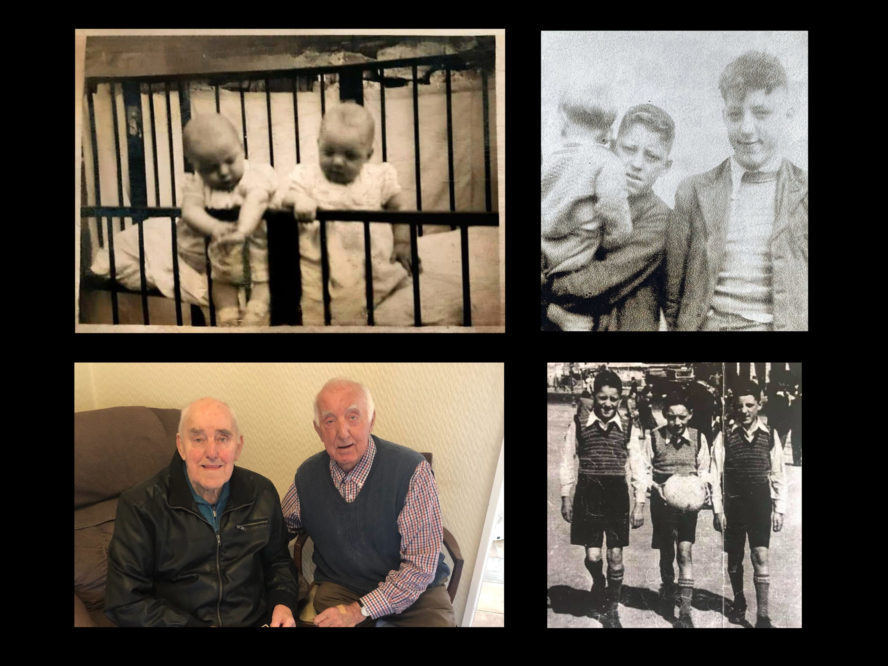
In all there were six children in the Gwillym family. The oldest three, Hilda, Des and Dick had all left home by this time. Roy, who is 89 years old, is the oldest half of a set of twins who were born at 7/8 Long Row, Pwlldu. Ron, his little twin brother, came along only minutes later, with the youngest, Max completing a trio of young lads, coming along a few years later.
I don’t think there can ever have been a dull moment in the house!
In August our conversations touched on so many aspects of life that made the community what it was, what made it tick, but I think for me it was the Christmas memories that touched me the most.
So … let’s go back in time and get a little snapshot of the festive season in the village during the period of the Second World War and the immediate years after, when rationing was very much a part of daily life, through the memories of Roy Gwillym, shared so very kindly by Jon.
Oh, how we all take electricity for granted these days. Cooking, lighting, at play or at work, every day we all flick a switch, plug something in and enjoy the benefits that come with our wired homes being connected to the national grid.
But … when you stop to think about the history of mankind on this planet Earth our use of electricity is still relatively new and at this time the homes at Pwlldu, as at other more out of the way places, had still not been connected to the grid.
I have a sense that the community would have been looking forward to this immensely, but during this time you have imagine life without so many of the things that are just there nowadays. I have stopped to think about what I would have missed most and I think it would have to be the joy of light at the flick of a switch.
Christmas Preparations
There were thirty houses at Long Row, constructed in strips of ten, changing angle ever so slightly every ten to give the impression of being curved.
Each row of ten had its own communal bake house, each equipped with two ovens, where originally much of the cooking would have taken place. It was only later that stoves and ranges were installed in the terraces, but this was not the whole story.
Roy remembers taking cakes to a bakery in Blaenavon one snowy Christmas for baking:
“We took the cakes on a sledge to Blaenavon, but we missed our first baking slot! But Mam knew someone in Blaenavon where we had some tea to wait for the next slot at the bakery. We ate cake for months afterwards. It was like a competition along the row, we had fifteen cakes!”
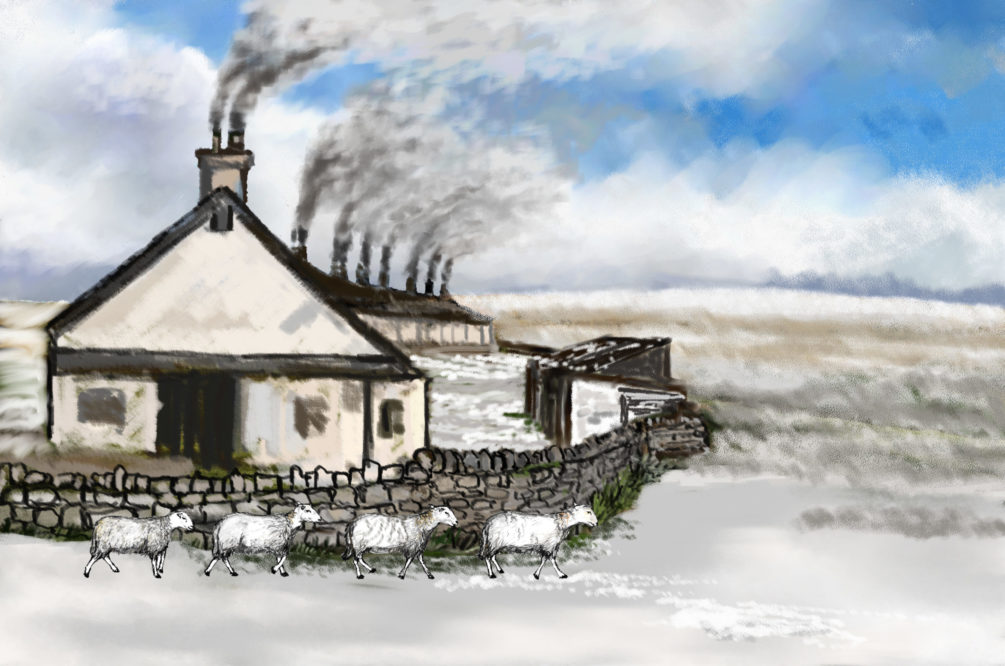
Christmas Eve
Bedtime would have originally involved the use of a ladder to reach the upper floor, but by this time it is likely that stairs would have been installed.
The bedroom would have gone straight into the rafters of the roof, there was no ceiling like you would expect today. All of the children slept on straw mattresses, with army great coats or army blankets as an extra layer to keep them warm.
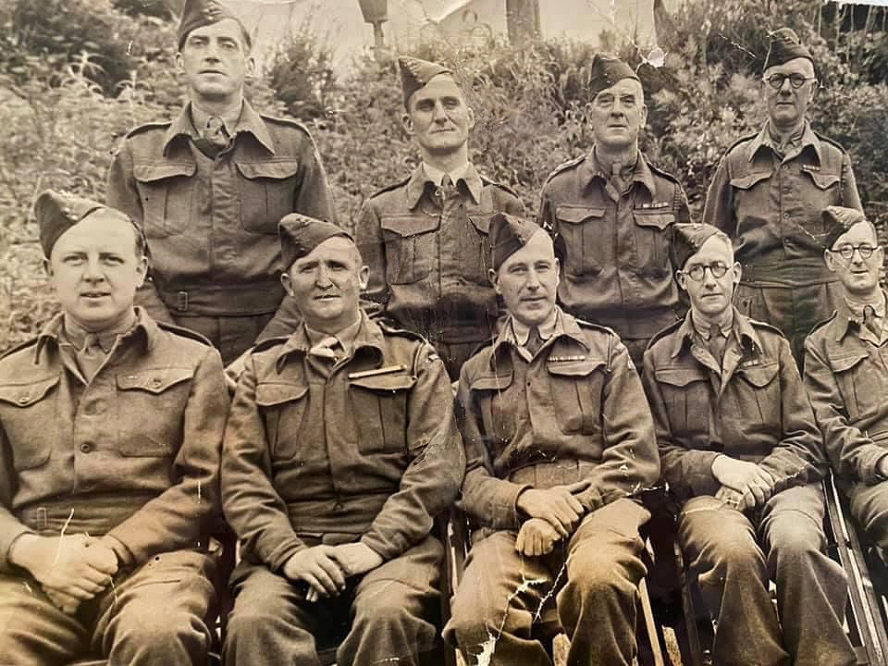
The coats or blankets probably belonged to members of the ‘Home Guard’ who used to meet at 7/8 Long Row every Sunday and they probably stored their equipment there as well.
One good turn deserves another and even though they were ‘rough and itchy’ the layer of warmth provided by the coats would have been most welcome during the dark, cold winter months, providing of course there was a soft, cosy blanket in-between!
You would always have known if it had been windy and snowy outside because the wind would have whipped up the snowflakes through an old window and there would be a little sprinkling of snow on top of the blankets in the morning!
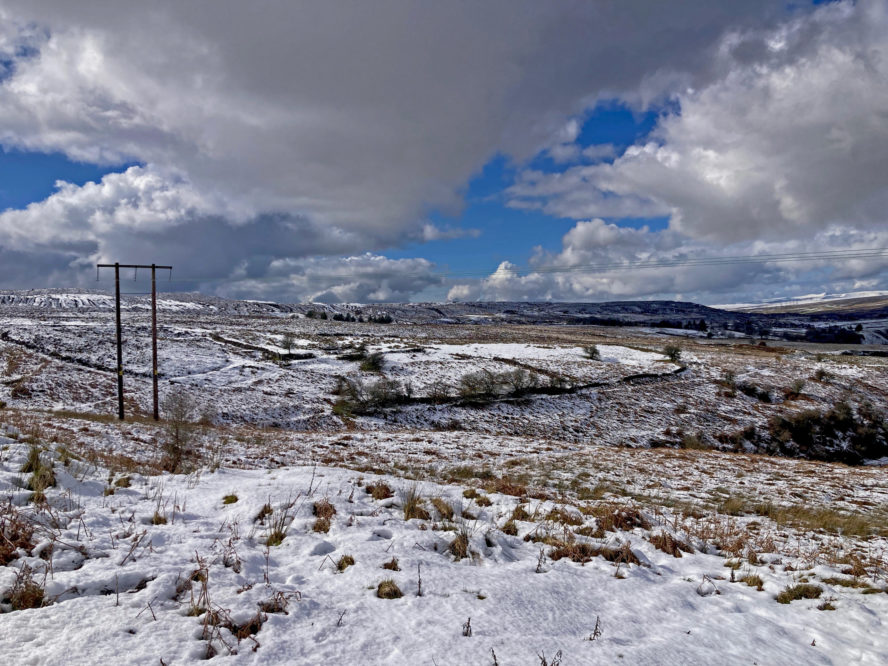
Christmas Day
Jon sets the scene for Christmas morning so beautifully in his own words;
“In my imagination Roy, Ron and Max are walking into a scene from Dickens. There is a roaring fire in the hearth. Their Mum, Amelia, has been up since the early hours getting the fire going and there is candle light flickering, with real small candles on the Christmas tree in the corner.
The stockings would be hanging on the mantlepiece for all of the children, with an apple or orange and just a slither of chocolate for each child. You may think that such a small amount would be gone in just a couple of mouthfuls, but they made the chocolate last all day, just knibbling on it to get the taste.
Pwll-du had no connection with the outside world other than their radios, which were run off the batteries charged by Joe Button down the road at Blaen Dyar waterfall via his ‘dyno waterwheel’, so in the afternoon everyone gathered around the radio to listen to the King’s Christmas message.”
How amazing it was that they had access to ‘Joe Button’s Dyno Waterwheel!’ just incredible. Incidentally, one of the jobs that the twins had to do was to take the radio battery down to Joe Button when charging was needed.
It was a job that they enjoyed very much, because Mrs. Button often gave them a glass of lemonade, which made the walk ever so worthwhile.
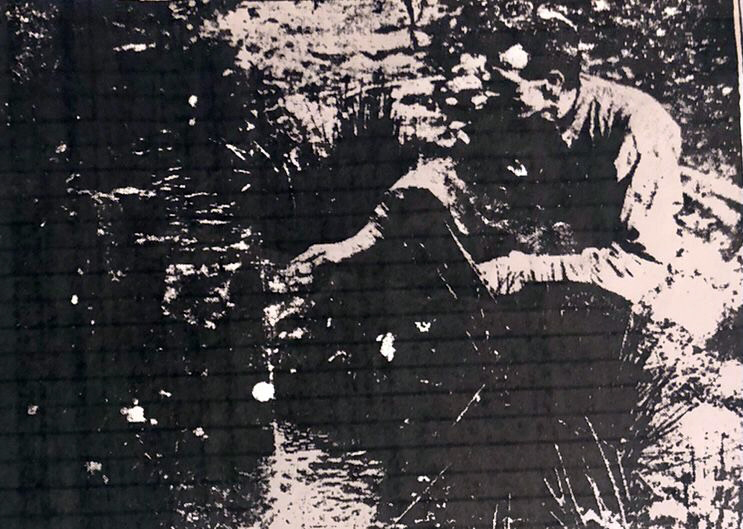
Presents
There were some surprising presents as well. Jon recalls the excitement with which his father spoke about a gift sent from London to a young evacuee living with his aunt on Long Row.
“A young evacuee about the same age as my dad called Bobby Long came to Pwll-du from London. Bobby’s family had been bombed out three times in London. He came to live with his Auntie Maggie Jones who lived at No. 15.
On his first Christmas Bobby was sent a projector. You imagine a projector coming to Pwlldu! The whole village was excited to see the picture show in one of the houses. His dad could remember being there, peeking his head through the front door. No one had ever seen a red double decker London bus before and there was one on the wall!
Of Bobby’s wartime stay his mother said I remember dropping off a nicely spoken Londoner, but I picked up this Welsh Taffy with knees knocked out and socks around his ankles!”
The end of the war saw the soldiers of the village return home after years of active service. Roy and Ron have real pleasure in remembering the homecoming of Edwin ‘Eddie’ Stokes, an engineer who served in the Royal Engineers in France, Germany and Burma.
He was a clever man, who was just as clever with his hands and could turn his creative, engineering skills to just about anything.
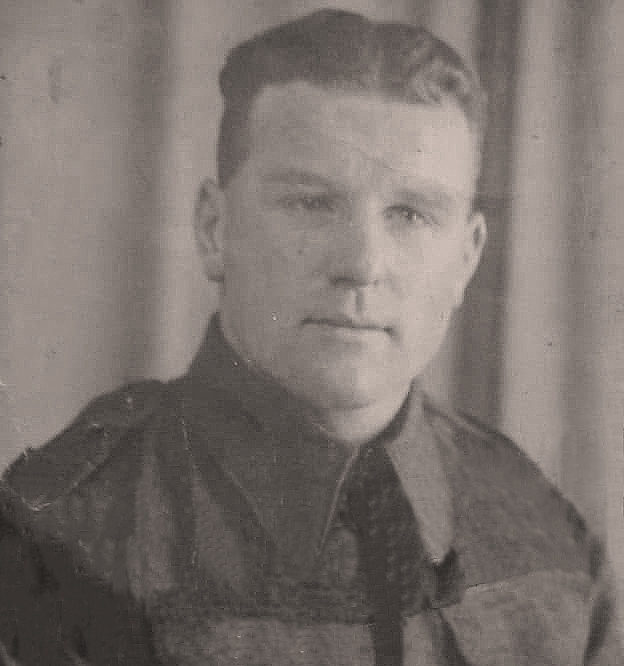
“When Roy and Ron looked under the tree in the Christmas of 1946, they stared with disbelief at little toy tanks, hand made in Pwll-du by Eddie Stokes with cotton reels for tracks propelled by an elastic band. And the excitement did not stop there! There were two hand carved wooden tommy guns that had a ratchet type mechanism made from old corn beef tins that made a rat-a-tat tat sound when turned!”
Such shades of Dad’s Army about this story and an insight into another world really. It takes me back to my own childhood memories of playing World War 2 games with my friends in the Sixties. Hard to believe now, thinking back.
Jon’s reflection about the New Year that was to come is poignant indeed.
“Little did they know what was coming in January. Just a few weeks later the great snow of 1947 would begin and everything ground to a halt. The pits were closed for weeks and Pwll-du was cut off. How fortunate we are today. “
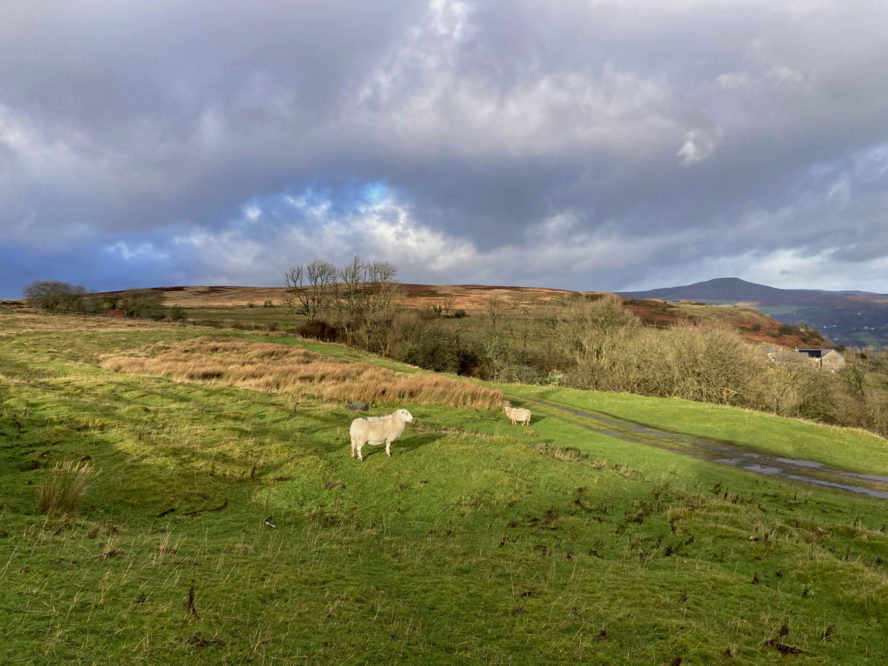
Sheep graze quite contentedly today, where Long Row would once have stood. It is a place that I have often walked previously, without any idea at all of the life, the joy and the community spirit that filled these houses.
Just down the hill a short way at Garnddyrys there is a wonderful display board that beautifully describes the incredible history of the site for visitors.
It would be lovely to see something like this for Pwll-du as well, as like Garnddyrys, this is a landscape that richly deserves the recognition and it would make understanding the landscape all the more accessible for everyone.
A powerful, extraordinary line that I remember well from studying Shakespeare’s ‘Julius Ceaser’ in my teens, is from the speech of Mark Anthony: ‘… the good is oft interred with their bones’.
I think memories are something like this too, even in quite recent archaeology, they are oft interred in the ruins and the artefacts that archaeologists excavate and study.
The professionals do their very best of course to provide an interpretation, but there is nothing better than the real thing.
Thanks to Jon and his father Roy, something of the real history of Pwll-du Village has been kept alive for future generations to enjoy.
Diolch yn fawr iawn i’r ddau ohonoch – thank you both very much.
Nadolig Llawen a Blwyddyn Newydd Dda i bawb – Merry Christmas and a Happy New Year to everyone.
Read the first article here: Pwll-du – Remembering a Village
Support our Nation today
For the price of a cup of coffee a month you can help us create an independent, not-for-profit, national news service for the people of Wales, by the people of Wales.






Jim Perrin’s mention in his Guardian piece about Penny Condry and Ynys Hir is telling…